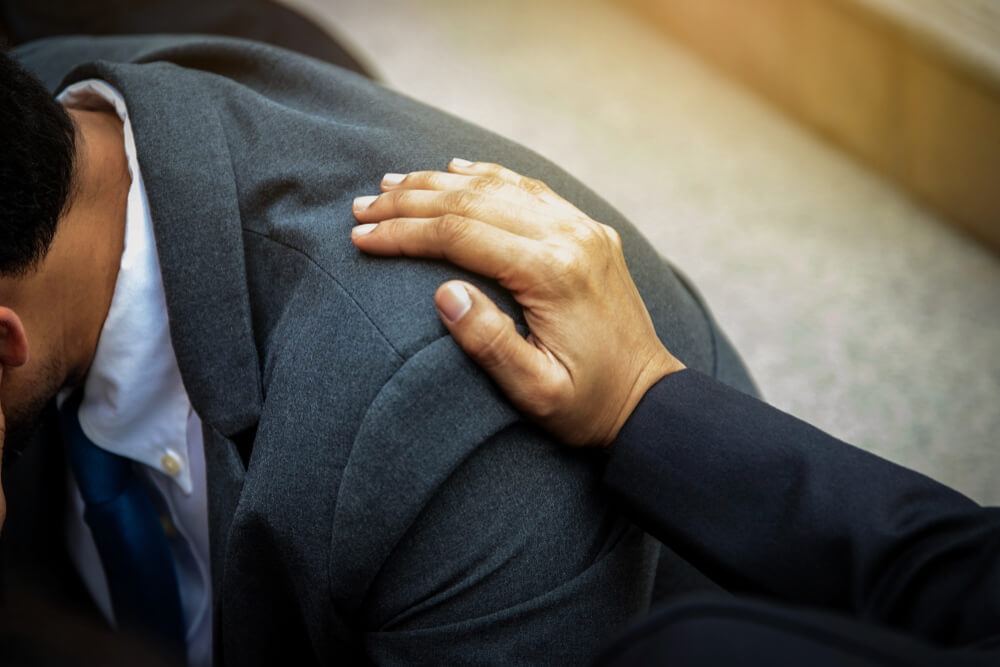
Early Warning Signs of Relapse
Legacy Healing Center Blog
Learn to Decipher the Initial Stages of Relapse
Much like a marathon, addiction recovery entails slow and steady progress with no quick solutions. Breaking free of a drug or alcohol dependence takes time, dedication, and effort. No matter how competent, no behavioral health center can break the addiction cycle without the determination of its participants. Even after initial success, signs of relapse in the form of triggers and cravings can occur and its important to recognize them as early as possible.
The danger of relapse remains ever-present, so its essential for those who have overcome a drug or alcohol addiction to know how to recognize the early warning signs. It is also critical for spouses, parents, other family members and friends to know these early warning signs because fast action could mean the difference between relapse and continued sobriety.
Click here to speak with a treatment specialist today or call us anytime 24/7 at (888) 534-2295
To honor National Recovery Month in September, we’d like to highlight some early warning signs of relapse. Recognizing these signs and taking action early on can help to prevent relapse and keep you or your loved one on track in recovery.
Poor Hygiene or a Lack of Self Care
If someone who has previously taken pride in their appearance starts dressing sloppily or skipping their daily hygiene routine, you should be concerned. People who have reentered active addiction may lose interest in the self-care routines they previously practiced, and as their habit worsens, their appearance and hygiene may follow suit.
Asking to Borrow Money
Drug addiction can be expensive, and most addicts need a steady stream of income to support their daily habits. Loved ones should ask questions if a previously self-sufficient family member begins asking to borrow large sums of money.
Theft
Asking to borrow money indicates an early warning sign of relapse, but so does stealing from family members, employers, and others. If someone you care about starts stealing money or other goods, you should seek help for them right away.
Denial or Defensiveness
People struggling with active addiction will rarely admit their issues with substance abuse. When asked directly if they are using again, they will likely deny they have a problem, and they may become defensive or even angry. This kind of reaction should always cause concern, and it is a classic early warning sign of relapse.
Compulsive Behaviors
Those suffering from relapse may engage in compulsive behaviors, from repetitive hand washing to checking and double-checking that the oven is off and the door remains locked. A return to previous drug use could trigger this kind of compulsive behavior, and this sign of relapse should never be ignored.
Reconnecting With Toxic People
Triggers can come from anywhere and are not always physical. Bars and night clubs can act as triggers, but so can the people who inhabit them. If an individual who had previously beaten an addiction begins hanging around with the old crowd again, it is time for family members to get involved. Early intervention at the first signs of relapse remains the best solution, and the sooner you act, the better.
Skipping Meetings or Leaving Support Groups
The help and support of peers can be vital to staying clean and sober in the wake of drug addiction. Support groups and regular meetings hold people accountable for their actions and give individuals the guidance they need to avoid triggers and prevent a dangerous relapse.
Leaving those support groups behind or skipping previously attended meetings indicates a major red flag for relapse. Friends and family members always need to keep tabs on their loved ones who are vulnerable to relapse and act accordingly.
Overcoming the Struggles of Addiction
From opioid addictions caused by powerful pain medications to the abuse of heroin, cocaine, and other street drugs, substance use disorder has become a massive issue in modern society. Timely intervention can make all the difference when you or someone you love suffers from this dangerous disease, but overcoming addiction is not a one-time event.
If you want to maintain your drug-free status for a lifetime, you need to recognize the early warning signs of relapse. If someone you care about is struggling with addiction, knowing the signs of relapse or an overdose could save their life. So take the time to educate yourself, learn the relapse warning signs, and be ready to take action if you are concerned. The staff at Legacy Healing Center can help you through this journey of transformation, putting you or your loved one back on the path to lifetime recovery.